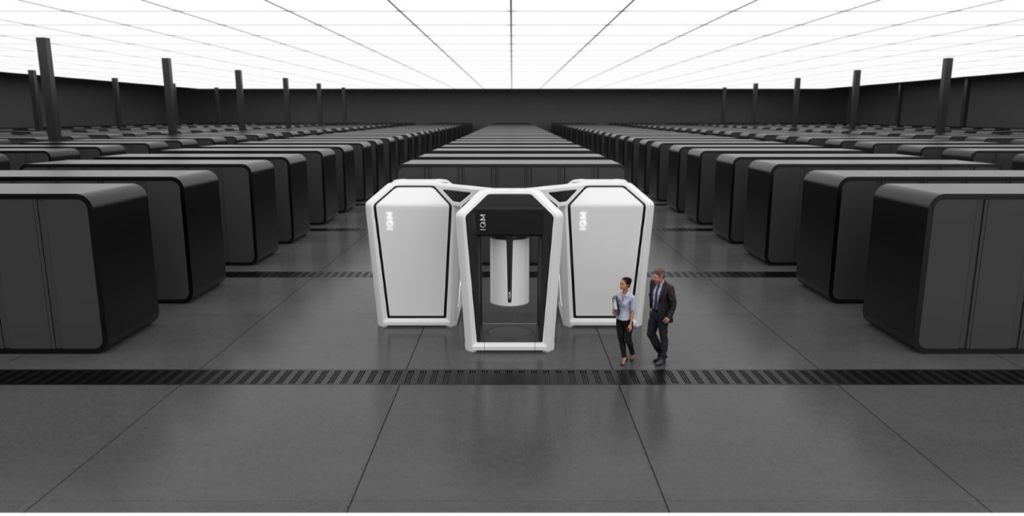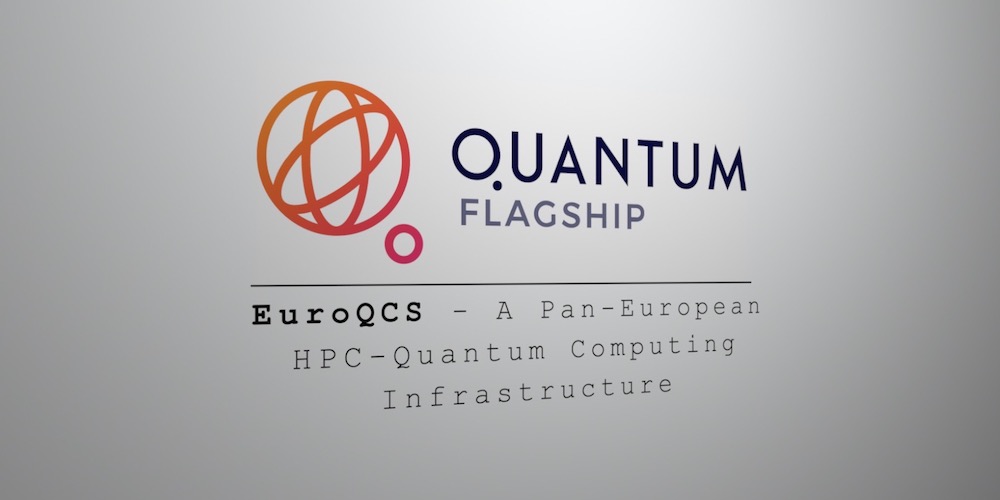As part of the EuroCC network of national competence centres, ENCCS is closely following trends and developments in the European HPC ecosystem at large. A major emerging theme in this space is Quantum Computing (QC).
EuroHPC JU has recently selected 6 sites to host a first batch of EuroHPC quantum computers. These sites will be IT4I (Czech Republic), LRZ (Germany), BSC-CNS (Spain), GENCI-CEA (France), CINECA (Italy), and PSNC (Poland). The consortia behind these hosting entities have indicated that they will promote the principles laid out in the Quantum Flagship’s EuroQCS – European Quantum Computing & Simulation. Infrastructure whitepaper, which came out last year. In this article we will provide a summary of the EuroQCS whitepaper and also outline our future plans within quantum computing.

The EuroQCS project aims to create a federated European infrastructure for hybrid classical-quantum computing with remote access to QCS devices. This ambitious objective can only be achieved through a synergistic action of Quantum Technologies (QT) and High-Performance Computing (HPC) communities and their existing initiatives and infrastructures. The High-Performance and Quantum Computing communities have come together to present their Joint White Paper on the EuroQCS Infrastructure: https://qt.eu/news/2022/european-quantum-computing-simulation
The White Paper represents a consensus on how to achieve convergence between HPC and Quantum Computing and Simulation. It lays out a path toward the development of a new generation of hybrid machines that have the potential to outperform classical supercomputers in solving problems of industrial and societal relevance.
The integration of HPC systems and QCS is crucial for enabling application scenarios going beyond pure digital or pure analog quantum processing. This is particularly the case for coupled simulation codes using a feedback loop, connecting parts running on traditional (von Neumann-based architectures) and those being simulated on a quantum computing system. However, integrating HPC systems and QCS is not without its challenges. Fundamental differences between the two computational paradigms need to be bridged in order to achieve successful integration. This can only be done if all levels of the system stack – from hardware to the application – are considered. A list of specific challenges can be found in Appendix A of the White Paper.
To ensure the success of the EuroHPC JU quantum plans, several recommendations have been made. These include establishing EuroQCS as a European federated quantum computing & simulation Centre of Excellence (CoE), supporting the development of software components, tools, runtimes and environments to ease the use of hybrid classical-quantum computing, and promoting EU Quantum Computing & Simulation research.
In addition to these recommendations, it is also important to support the user community in order to prepare them with the skills required for exploiting the emerging hybrid HPC/QCS systems. This can be achieved through increased collaboration across the HPC/QCS developer community in Europe to maximise knowledge transfer across the community.
Outreach is also crucial in order to raise awareness about the existence and potential of this new field of applications. Associations like ETP4HPC and TERATEC play an important role in promoting HPC and quantum computing technologies.
In June 2022, ENCCS held a two-day training workshop “Introduction to Quantum Computing & Hybrid HPC-QC Systems” in collaboration with NordIQuEst: https://enccs.se/events/2022-06-quantum-computing/. The workshop covered the fundamentals of quantum computing, including key concepts such as quantum states, qubits, and quantum algorithms, as well as QC programming in high-level languages for use cases in optimization, finance, and quantum chemistry. In the coming fall, ENCCS is planning a follow-up more advanced version of this workshop. Stay updated via the ENCCS newsletter, Twitter, and LinkedIn.
We are also looking into growing a community around Quantum Computing in Sweden. Please visit this Discord channel if you would like to join this community and help it grow!
In conclusion, the EuroQCS project represents a significant step towards realizing a federated European infrastructure for hybrid classical-quantum computing. By addressing the challenges and following the recommendations outlined in this whitepaper, Europe can remain at the forefront of conceiving, developing and commercializing quantum computing and other quantum technologies. ENCCS will continue to monitor these developments, organise training events and disseminate relevant information to HPC and QC stakeholders in Sweden.








